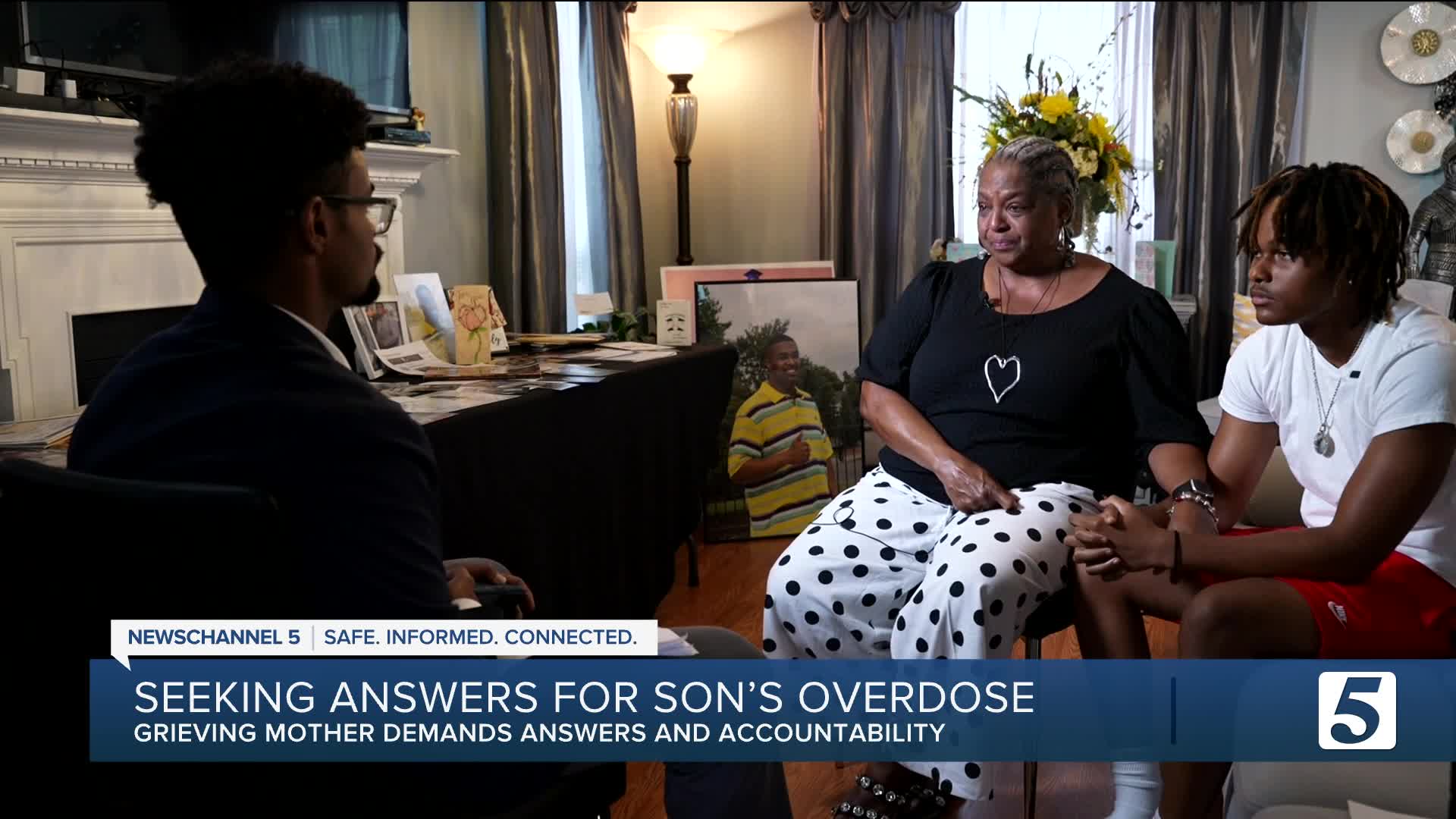NASHVILLE, Tenn. (WTVF) — A Nashville mother continues to fight for answers two years after her son died from a fentanyl overdose while incarcerated at a privately run correctional facility.
Sylvainus Cole III was an inmate at Whiteville Correctional Facility when he overdosed on fentanyl in 2023. The prison is owned by CoreCivic, a private, for-profit company.
Christine Williams says her son wasn't a drug user before entering prison and blames staffing shortages and negligence for his death.
"I'm not ever going to get over it. There's no way," Williams said.
There aren't many days when tears don't stream down Williams' face as she carries the crushing weight of self-blame and grief over her son.
"I thought this would be a lesson for him, this would be a ‘mama told you so’ — not that he would pass away," Williams said.
The pain is especially difficult because she always taught her son the importance of hard work — a work ethic that led Cole to become one of Middle Tennessee's premier athletes, earning a football scholarship to Oklahoma State University.
"He was a champion everywhere he went when he played ball, even at 6 years old," Williams said.
Cole also became a father before a bad decision resulted in a robbery conviction and a sentence of more than a decade.
"After making the mistake, I talked with him to say it's okay. You know, when you come home, you still have your family, you still have your son," Williams said.
While serving time, Williams says her son got into drugs.
"My son wasn't a drug addict when he went into the prison system. He wasn't on drugs. He simply made some bad choices," Williams said.
She says visitations at Whiteville Correctional Facility were regular until after the pandemic.
"They never had visitation because they didn't have staff. They were understaffed all the time," Williams said.
On April 3, 2023, Cole took a drug that led to a fentanyl overdose, and he died. Williams says her son was supposed to be released from prison later that year.
When asked if she had received answers about how drugs got into the facility, Williams responded: "Absolutely not, absolutely not."
Williams will never forget the day she finally got to bring Cole home.
"We had a full funeral for him so I could see him," Williams said.
Cole's son, Sylvainus Cole IV, is using his father's story to walk a different path, with plans to attend college in the fall.
"Just break generational curses and things like that. I don't want to go down that path," the younger Cole said.
Williams has filed lawsuits against CoreCivic and continues to demand answers, hoping something will change.
"I know I will never get over this — ever. All I pray is God show me how to live with this and how to speak out and be a light for somebody else. That's what I pray," Williams said.
CoreCivic's response:
As a general policy and out of respect for the legal process, we do not comment on active or pending litigation, but what I can share is that we take the safety and health of every individual in our care seriously. To that end, we have a zero-tolerance policy for the introduction of contraband. The introduction of contraband, including harmful substances, is a nationwide challenge for all correctional facilities. We work closely with our government partners and law enforcement officials to detect, prevent, and investigate the introduction of contraband into our facilities. This includes unannounced inspections inside and outside of our facilities, as well as the placement of state-of-the-art body scanner screening technologies in strategic locations all our facilities in Tennessee.
Anyone coming into our facilities, employee and visitor alike, is searched for contraband. Correctional officers patrol our facilities inside and out; monitoring systems surveil public areas; mail is checked; and tip lines are available to report any encounters with contraband. All our Tennessee facilities have medical personnel who immediately respond to emergency calls, and our staff is equipped to provide lifesaving care to any individual experiencing a medical emergency. This includes administering Narcan as an intervention in a medical emergency response.
Regarding staffing, we work to meet or exceed our daily staffing patterns at all our facilities, which are designed to ensure the safety of the facility, our staff and those in our care. It's also worth noting that both public and private correctional agencies across the country – and indeed many industries more broadly – have faced staffing challenges in recent years. CoreCivic has been laser focused on these challenges, working in close collaboration with our partners at the Tennessee Department of Correction (TDOC), to aggressively focus on recruitment and employee retention efforts. We have significantly increased wages and bonuses at all our facilities in Tennessee. Our training managers also set teamwork goals and educate staff on our other incentives and benefits such as health insurance, a 401(k) matching savings and retirement plan, paid time off, the CoreCivic University program, the CoreCivic Scholarship Fund, and more.
This story was reported on-air by Aaron Cantrell and has been converted to this platform with the assistance of AI. Our editorial team verifies all reporting on all platforms for fairness and accuracy.

During a week when it seems that frustration is the prevailing sentiment felt across middle Tennessee amid ongoing power outages, Forrest Sanders brings us a story of love, faithfulness and a remarkable family... plus, a little humor on the side. Enjoy!
- Carrie Sharp





